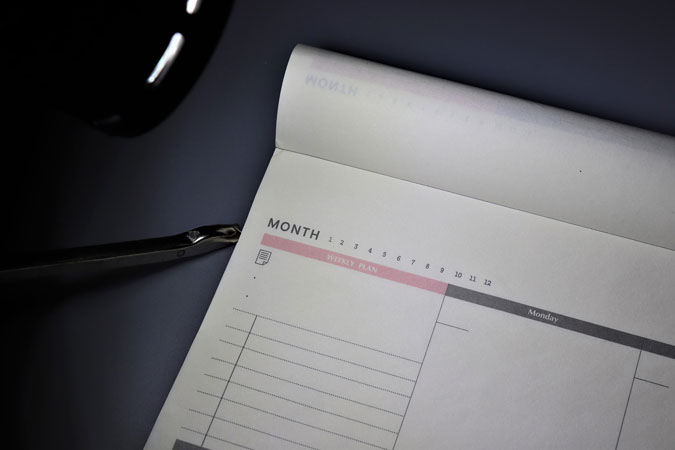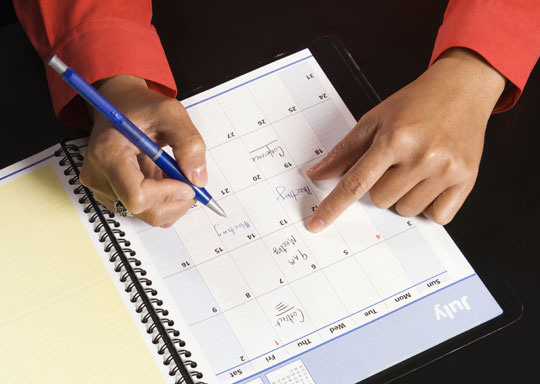
When I start seeing back-to-school sales I know it’s time to put together my yearly calendar for planning my upcoming year as a catechist. When I first became a catechist, I just flowed through the year with no overall plan. I would read over the next lesson in my teacher guide several days before an upcoming class and then present it from the book. That was not my best effort, and I remember scrambling at times as a result of my lack of planning. At one point when I was coordinating an activity with another catechist, she sent me her yearly plan. Seeing her calendar was a revelation. Now I lay out my whole year. My yearly calendar gives me an overview of the year, gives me confidence that I will meet deadlines, helps me track what I have covered or still need to cover, and assists me in adjusting when sessions are cancelled.
First, my calendar gives me an overview of the year and helps me see the overall pattern of my lessons. Most of my lessons are connected to our textbooks, but I also include lessons that go with the liturgical year, as well as other topics such as prayer, saints, and the Ten Commandments. Laying out the whole year allows me to plan when best to cover all my lessons in a way that makes sense. I also highlight in red key events that are part of the parish program but may not even happen during class time: our parish’s 40 Hours Devotion, a group Rosary, fire drills, parent meetings, retreat days, and more.
My calendar assists me with meeting important dates and deadlines outlined in our schedule. I’ve heard it said that, “If you don’t know where you are going, you might wind up someplace else.” I prepare children for First Reconciliation and First Holy Communion. This means there are specific time constraints on when the preparation for these sacraments must be done. All of our lessons and practice for these sacraments must be finished before they can be celebrated.
Having a yearly calendar helps me keep track of what we have covered at a glance. My calendar includes details about each week’s lesson: title, theme, Scripture, vocabulary, saint, and homework. If I’m creating a review sheet or questions for a review game, I just look at my calendar. There is no need to flip through my lesson plans or textbook. I try and offer a variety of prayer experiences throughout the year (e.g. the Rosary, guided meditation, Eucharistic Adoration). I can note these on my calendar as we go through the year, so I know what I have done and can easily see what has yet to be accomplished.
Finally, my yearly calendar aids me when I need to adjust my lesson plans because classes get canceled. My calendar clearly lays out what content I had planned to cover and helps me to evaluate what I must cover, can cover in less detail, or omit altogether. Every year I lose classes for various reasons such as snow days, a broken pipe that closes the building, or extra practice for the Christmas pageant. Two years ago I even lost three of the last four classes of the year. Having a yearly calendar helps me see easily how I need to readjust.
These are some of the ways that having a yearly calendar helps me as a catechist. What planning methods do you use? How have they helped you?
Image by Olga Oginskaya from Pixabay.
Don’t forget to join the Catholic Faith Formation Facebook Group to share planning ideas and more with other catechists.





My class is usually 3/4 or 5/6 and I’ve always used a calendar, for the exact purposes you mention. I also include Sunday’s Gospel and link it to curriculum content. Plus, any significant feasts and/or holidays.
It’s true. Every class we read and discuss the Gospel for the upcoming Sunday. Looking ahead by having the Gospels in the plan is perfect for making the connections!